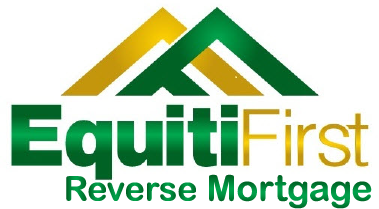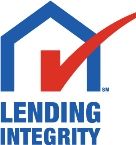Answers to Your Loan Program Needs
What is a mortgage?
A mortgage is a legal agreement that outlines the terms between a borrower and a lender for the purpose of buying or refinancing real property.
Can a person ever lose their home?
Certainly not because of a reverse mortgage. It is impossible to default because there are no payments to make. The home must be the borrower’s primary residence. Like any traditional mortgage, you must keep home insurance and taxes current.
What if I have had a bankruptcy, foreclosure, or just bad credit?
FHA and VA will allow financing as soon as 2 years from the discharge date of a Chapter 7 bankruptcy. Foreclosures have a 3-year waiting period with FHA and a 2-year waiting period with VA. A borrower must have re-established credit and otherwise qualify for the mortgage. FHA will tolerate credit scores as low as 500 for borrowers who otherwise qualify. Keep in mind that a credit score between 500 and 579 requires a 10% down payment for FHA loans. VA does not set a minimum score for borrowers; however, most lenders set a minimum qualifying score.
What options are there for a no down payment or a low down payment?
USDA and VA loans require no down payment. In addition, FHA offers a no down payment loan for qualifying borrowers whose primary home was destroyed in a federally declared disaster area within the last 12 months.
FHA offers a $100 down payment for qualifying borrowers who purchase a HUD-owned property.
Conventional loans offer a 3% down payment, and FHA offers a 3.5% down payment to qualifying borrowers.
What will my interest rate be?
It depends. Interest rates fluctuate several times a day. The base rate will be adjusted based on your unique qualifying factors. Good credit scores or a large down payment can lower your base rate. Poor credit or a minimal down payment can raise your base rate.
How long will it take to close on the mortgage?
Most traditional loans take about 30 days from the time your loan goes into underwriting until you are at the closing table and taking possession of your new home. Foreign national loans usually take 45-60 days. Reverse mortgages take about 60 days. As a general rule, straightforward files can close sooner, while more complicated files can take longer.
What are mortgage insurance, MIP, and PMI?
Mortgage Insurance, or MI, is insurance that protects the lender from loss if a mortgage goes into default. It is paid by the borrower to protect the lender. Mortgage Insurance Premium, or MIP, is charged on FHA loans. There is a one-time up-front component that can be financed into the loan. There is also a monthly portion that is added to the monthly mortgage payment. Private Mortgage Insurance, or PMI, is charged on conventional loans where the down payment is less than 20%.
What is Title Insurance?
Title insurance protects the borrower and the lender from any claims to title once the loan is closed. It is a one-time charge paid at the loan closing.
What are Closing Costs?
Closing costs are all the costs associated with securing the mortgage. They can include credit report fees, title insurance, appraisal, survey, HOA fees, underwriting fees, origination fees, processing fees, up-front mortgage insurance, VA funding fees, etc. They can also include pre-paid fees such as your first year of insurance and deposits to set up your property tax and hazard insurance escrow accounts. All possible closing costs should be disclosed to you within 3 days of applying for a mortgage. Closing costs average 3-6% of the purchase price of the home.
What is a Fixed Rate vs an Adjustable Rate?
A fixed interest rate will not change for the life of your loan. An adjustable-rate can change the life of your loan. However, the lender cannot arbitrarily change your interest rate. Any rate adjustment will be tied to a market index, such as US Treasury Note or LIBOR. Adjustment periods should be disclosed to you by your lender before you sign your mortgage agreement. All terms will be outlined in your mortgage.
What is a 'reverse' mortgage?
A reverse mortgage is formally known as a Home Equity Conversion Mortgage (HECM). It turns a percentage of the equity in your home into tax-free monthly income or lump-sum cash. No mortgage payment is ever required for as long as you live in your home.
What if I have had a bankruptcy, foreclosure, or just bad credit?
FHA and VA will allow financing as soon as 2 years from the discharge date of a Chapter 7 bankruptcy. Foreclosures have a 3-year waiting period with FHA and a 2-year waiting period with VA. A borrower must have re-established credit and otherwise qualify for the mortgage. FHA will tolerate credit scores as low as 500 for borrowers who otherwise qualify. Keep in mind that a credit score between 500 and 579 requires a 10% down payment for FHA loans. VA does not set a minimum score for borrowers; however, most lenders set a minimum qualifying score.
If I have a fixed-rate mortgage, why did my payment change?
Amortized fixed-rate mortgages provide for a fixed principal and interest payment throughout the life of the loan. However, most mortgage payments also include payments toward your real estate taxes and hazard insurance payments. While the principal and interest payments remain fixed from year to year, the tax and insurance payments typically adjust annually.
What is an appraisal?
An appraisal is an opinion of value provided by a licensed real estate appraiser. The appraiser will take into consideration the condition of the subject home compared to nearby properties and recent sales prices.
What is a Survey?
A property survey is a map showing property boundaries, easements, and physical features of an area of land. It designates where buildings and other permanent improvements are situated on the property.
What is DTI?
DTI stands for Debt-to-Income ratio. A front-end DTI shows the borrower’s total housing payment in relation to the borrower’s income. A back-end DTI considers the total housing payment plus all other borrower debt (car payments, student loans, credit cards, etc.) as it relates to the borrower’s income.
What is LTV?
LTV stands for Loan-to-Value. It is the percentage of the mortgage compared to the appraised value of the property. For example, a borrower with a down payment of 10% on a $100,000 purchase would have an LTV of 90%.
What is Escrow?
An Escrow account is like a forced savings account. Most lenders require borrowers to have an escrow account for property taxes and hazard insurance payments. These accounts are set up by the lender and are managed by your loan servicer. Your monthly mortgage payment will include your principal and interest payment (P&I) plus 1/12 of your annual property taxes and 1/12 of your annual hazard insurance policy fee. For example, if your annual property taxes are $2,400 and your annual hazard insurance policy is $1,200, your monthly mortgage payment will include your escrowed tax payment of $200 and your escrowed insurance payment of $100. When property taxes are due and when the insurance policy renews, the lender will pay these bills on your behalf out of these escrowed funds.
Don’t see your question? Contact Wesley at 407-694-9803.
Browse Our Website
Contact Information
Address:
7575 Dr Phillips Blvd Suite 245 Orlando, FL 32819
Phone: (407) 694-9803
Email: wesleytbal@gmail.com
Licensed by the Florida Office of Financial Regulation
License #MBR1587
Licensed by the State of Virginia
License #MC-7669
Company NMLS ID # 392376 (www.nmlsconsumeraccess.org)











